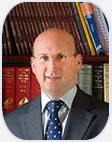We are a lesser profession for not having an open discussion about the direction of medical training
 “We (consultants) do more and more, and we see our registrars less and less.” “I can’t get a decent registrar on our professorial unit.” “Would I recommend the job to my children? Well, yes if they could have 30 years like I’ve had, but to do the job they do now—probably not.” “We know national selection is not fit for purpose.” “My juniors, ST3 say, don’t know how to suture.”
“We (consultants) do more and more, and we see our registrars less and less.” “I can’t get a decent registrar on our professorial unit.” “Would I recommend the job to my children? Well, yes if they could have 30 years like I’ve had, but to do the job they do now—probably not.” “We know national selection is not fit for purpose.” “My juniors, ST3 say, don’t know how to suture.”
I could probably fill up a whole article with comments like this that have been made to me over the past few months by senior consultants—all great trainers with so much to offer, all motivated to teach and to share their experience, yet all distressed by the direction they see British medicine going in.
I recognise that the plural of anecdote is not data. Nevertheless, it can be challenging to gather data to confirm the opinion of the many—particularly when what is possibly the majority opinion is not the current position held by those with apparent authority. Many are very willing to have a quiet word at a conference here, a corridor conversation there, and a brief observation or whinge to a colleague, but are not prepared to speak out about their concerns over the perceived failure of modern educational methods to improve the quality of training.
It’s easy to see how this kind of herd thinking happens. The herd seems safe, but stepping away from it and voicing a view that is at odds with those in authority puts the individual in the spotlight and makes him or her potentially vulnerable. However, if no one is prepared to express an alternative view, we may all get dragged along a dangerous path leading, possibly, to decline and deterioration.
I think many consultants currently in practice feel that the quality of training is declining. I think many believe the processes we have in place allow a pretence that training is improving. And I reckon that many doctors think much of their time is spent on pointless processes and superficial assessments, which add no value. I know that most feel it’s easier to say nothing, to appear to comply with the processes, while actually stepping increasingly away from the trainee and increasingly losing interest in the next generation. Senior general practitioners are opting out of continued practice instead of going through the administrative burden of revalidation. And trainers have said to me that they are weighed down by the paperwork of training, which takes time away from meaningful teaching.
Medical school emphasises a target of “minimum competence,” rather than the achievement of detailed and comprehensive understanding. I’d not even heard the word competence with respect to medical training until some few years ago. Medicine, throughout its long history, has never previously been about achieving competence—it was always about the pursuit of excellence.
Is it not time for the profession to have an open debate about this? Isn’t it time for more of us to step away from the herd and proffer the view that some—if not a lot—of what we do in the teaching of surgery and medicine in 2017 is of very limited value and seems to be in place to satisfy bizarre processes?
I do not believe that I’m the only one who is having these conversations. I recognise that with social media we increasingly surround ourselves with opinion makers and thinkers who agree with us; that we are all capable of hearing thoughts that confirm our biases and ignoring comments that disagree with our views. Yet I write this “knowing myself,” as the ancient Greeks were instructed to do at the entrance to the Temple of Apollo at Delphi, and I believe that the views I am expressing are widespread throughout the medical and surgical disciplines.
Herd thinking in the past resulted in bad medicine: Galen’s humoral theory of disease, for example, was the accepted view for over 1500 years.
What should we all do? Let’s challenge the established dogmas. Let’s discuss this out loud and highlight in medical meetings and surgical fora how these processes have an adverse impact on the training of junior doctors and the NHS in general. Processes that suppress excellence, such as competency based training; processes that suppress personal drive, such as the European Working Time Directive; processes that waste precious time, such as many of the current assessments in the Intercollegiate Surgical Curriculum Project; processes that stop us from inspiring the next generation—taking juniors out of surgery house jobs and out of the emergency medicine department; processes that waste money, such as the unnecessary appointment of physician associates to do the jobs our junior doctors should be doing; processes that pointlessly take doctors out of clinics and waste hours of consultant time, such as mandatory training; processes that have become superficial and process obsessed, like the annual review of competence progression, when they should be pastoral and look at depth.
I could go on. We need to speak out loud, to ask our colleagues about their experiences, to challenge college and training representatives—to have the debate. I find our failure to challenge the direction of travel disturbing. Our trainees need us to stand up and question what’s happening. I don’t know if I’m necessarily right in what I believe, but I do know that we are a lesser profession for not having the discussion.
How long will it take before we realise the possible errors of our current attitudes, practices, and policies or before we are even able to have the debate? Let’s start questioning our profession’s obsessive, almost fervent, concern about the length of the working day, the false idol of the ticked box, the constant devotion to the god of competency, and our daily sacrifice of the pursuit of excellence.
Jonathan Glass is a consultant urologist at Guy’s & St Thomas’s Foundation Trust. Twitter @JMG_urology.
Competing interests: I have read and understood BMJ policy on declaration of interests and declare the following interests: None.
